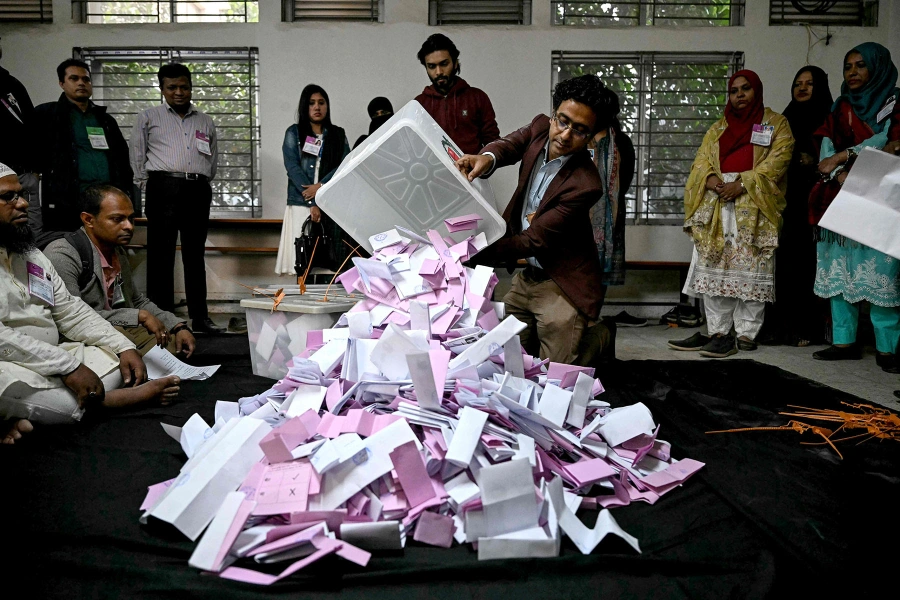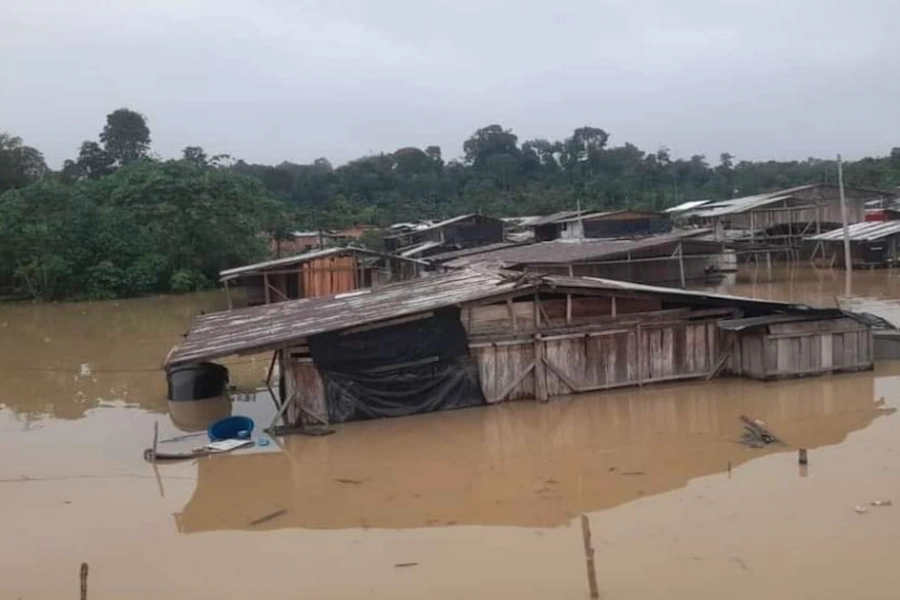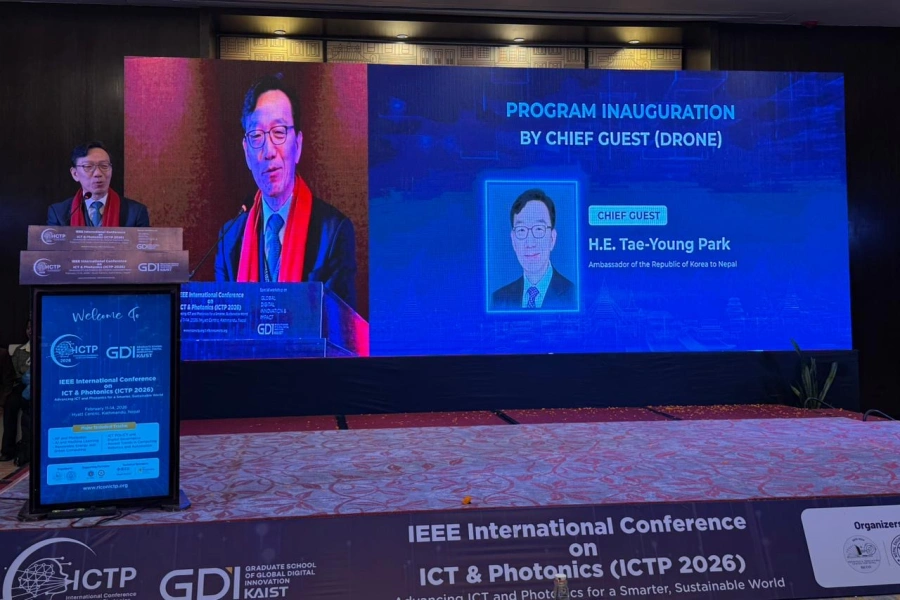In the grand chessboard of politics, are the people still paramount, or have they become mere pawns in a larger power play?
As Nepal strides forward on its development journey, positioning itself as a nation transitioning from a low-income to a middle-income status, it confronts an array of complexities that go beyond infrastructure and economic metrics. The very foundation of its progress – the values, principles, and ethics that underpin its diverse professions – appears to be under scrutiny. In an era where the world lauds Nepal for its progress in sectors like health, education, and infrastructure development, an undercurrent of shifting professional morals and intentions offers a contrasting narrative. Are the cornerstones of altruism, service, and knowledge, which have traditionally anchored our professions, now being overshadowed by individualistic pursuits and materialistic gains? From the bustling urban centers of Kathmandu to the developmental hubs in Pokhara, Butwal and beyond, there's a palpable shift. As the nation seeks to redefine its developmental identity in the global arena, it must introspect: Are the ethics and values that should naturally accompany this growth being compromised? This article delves into this critical aspect, exploring the transformations within various professions and the implications they have for Nepal's holistic progress.
Let's delve deeper into these transitions to understand the heart of the matter.
NGOs: The Transformation from Altruism to Self-interest
Vitality of Ethics and Dignity in Human Existence

Non-Governmental Organizations (NGOs) emerged as a beacon of hope in societies riddled with disparities and challenges. Founded on the bedrock of altruism, they aimed to rectify societal imbalances and champion the causes that remained unaddressed by larger institutional frameworks. Their purpose has always been clear-cut and noble: to amplify the muted voices and to bridge the daunting gaps where standard governmental mechanisms might stumble or overlook. Yet, as we navigate through modern times, a concerning trend has surfaced. For some, the very essence of altruism that defined NGOs is waning, replaced instead by personal ambition and materialistic pursuits. The sector, once revered for its selflessness, is now viewed by a few as a goldmine for personal enrichment. This shift raises pressing questions about integrity and intent in the world of NGOs. As we witness this transformation, we are left pondering: Is the commitment now leaning more towards personal gain than the greater good? Are NGOs becoming more about the coin than the cause?
Politics: Power Play or Public Service?
The political sphere, intrinsic to the fabric of any nation, not only determines its governance but also shapes its future trajectory. Politicians, entrusted with the mantle of leadership, are expected to be the guiding forces steering the nation towards collective progress. Their role transcends mere administrative duties; they are the embodiments of public service, representing the hopes and aspirations of the masses. However, in the intricate corridors of Nepal's politics, a concerning transformation is underway. A growing number of individuals are being lured into politics, not by the call of public service, but by the allure of power and personal benefits. This shift, from being selfless stewards to agents of selfish ambitions, threatens to destabilize the very tenets of democracy. When the line between personal interest and public welfare blurs, it casts a shadow over the essence of true leadership. Amidst this evolving scenario, the pressing query emerges: In the grand chessboard of politics, are the people still paramount, or have they become mere pawns in a larger power play?
Teaching: Imparting Knowledge or Imposing Influence?
The noble realm of teaching, historically regarded as one of the cornerstones of civilization, finds itself at a critical juncture in Nepal. These educators, often referred to as the architects of the future, shoulder the significant responsibility of shaping young minds, preparing them to confront and conquer the multifaceted challenges of the coming decades. However, the increasing politicization of this esteemed profession is casting a shadow over its foundational principles. As affiliations to political parties become more pronounced, there's a rising concern: Are educators now prioritizing party loyalty over their genuine commitment to knowledge dissemination? Such a shift threatens to produce a generation more influenced by political biases than equipped with empirical knowledge and logical reasoning. If the trajectory continues, the implications could be profound. It beckons a critical introspection: How can the sanctity of the teaching profession in Nepal be preserved, ensuring students receive an education that's both balanced and devoid of undue influence?
Religion: Spiritual Awakening or Materialistic Pursuits?
Religion and spirituality have historically served as sanctuaries for souls seeking refuge from the relentless pursuits of the material world. These realms, defined by their inherent renunciation of worldly desires, offer a path to enlightenment, steering devotees towards a life of contentment and inner peace. However, a perplexing transformation seems to be encroaching upon these sacred spaces. When religious leaders, the very individuals tasked with guiding the masses on their spiritual journeys, conspicuously display and revel in material affluence, it inevitably creates a discordant note. Their burgeoning indulgence in materialistic luxuries paints a contrasting picture to the ascetic ideals they're expected to embody. Such dichotomies complicate the spiritual quest for many genuine seekers, introducing a narrative of confusion. This trend inevitably provokes a pressing contemplation: In the modern age, is the essence of spirituality becoming overshadowed, with the scales tilting more towards material acquisitions? Are the spiritual corridors now echoing more of commerce than of cosmic consciousness?
Public Service: Serving the Nation or Serving Self?
Public service, an esteemed realm historically associated with duty, honor, and a deep-rooted commitment to societal well-being, finds itself under the lens of scrutiny in contemporary times. At its core, this sector has been the bastion of values such as transparency, honesty, and an unwavering dedication to the common good. However, recent tales of unethical conduct and corruption have raised unsettling questions about its integrity. When those entrusted to safeguard public interests become the very architects of deceit and misconduct, it casts a shadow over the entire system, leaving the ordinary citizen in a quandary of trust. The pressing question then arises: If one's primary ambition is the pursuit of personal wealth and opulence, wouldn't the business sector, where financial aspirations are not only transparent but also celebrated, be a more honest avenue? It's essential to distinguish between selfless service and selfish pursuits to preserve the sanctity of public service.
Navigating through the intricate web of values, motives, and actions across various sectors, from NGOs to public service, it becomes evident that our societal ethos is teetering on a delicate balance. These deviations aren't just anomalies; they signify a broader issue in our societal conscience. As Nepal finds itself on the cusp of dynamic change and development, introspection is paramount. What ethical pillars will uphold the Nepal of tomorrow?
It's essential to understand that genuine progress is rooted not in individual aggrandizement but in the common good. And herein lies a fundamental truth: It's better to give our utmost in roles we've committed to or step aside, making way for those truly deserving. To occupy a position and misuse its privileges doesn't just erode societal and national foundations; it corrodes one's own moral compass. As we forge ahead, we must ponder: Will our legacy be one of collective upliftment or individual gain at societal cost? Every citizen must heed this call, reassessing personal actions for the broader good. Only then can we envision a Nepal that thrives on integrity, unity, and shared progress.




































